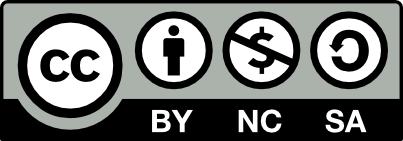/ In the land of Fresh Water
Abstract
The myth of total Taino Indian extinction has done immense damage to the study of modern Dominican culture. As it stands any Dominican custom that is not clearly Spanish will undoubtedly be considered African by default. In addition, speaking of Taino continuity is considered by many to be anti-African, anti Haitian and an extreme obsession by Dominicans to identify with the Indian in denial of their Negritude. Yet despite extinction narratives, Dominicans continue to cling to an Indian past. The late Antonio de Moya wrote “We never disappeared as a people, nor as a culture. We fused with the European and African, creating an unreal but certain us”. In this time, we have the opportunity to rescue our past. Our elders who maintain our ancestral knowledge are in their 80-100 years of age will inevitably cross-over in the next 10 to 15 years taking with them the clues to our past hidden under pages filled with extinction narratives. We must act now!
Keywords:
indigenous population, Caribbean, ethnicity, Dominican RepublicReferences
C. H. De Goeje. Philosophy, initiation and myths of the Indians of Guiana and adjacent countries. Leiden, E. J. Brill, 1943.
Cornejo Valle, Mónica “Las definiciones de lo religioso en la antropología social. Conceptos y discusiones clave en la búsqueda de un universal cultural”, Bandue IX, Revista de la Sociedad Española de Ciencias de las Religiones, 2016; pp. 67-88.
Tajima/Hamaguchi, “Genetic background of people in the Dominican Republic with or without obese type 2 diabetes revealed by mitochondrial DNA polymorphism”. Journal of Human Genetics, volume 49, 2004, pages 495–499, https://www.nature.com/articles/jhg200481#citeas
Deren, Maya. The divine horsemen. The living gods of Haiti. Kingston, New York McPherson Publishing, 1983.
Leyva Figueroa, Rafael Eugenio. “Vudú. Paradigmas e identidades encontradas en El reino de este mundo”, en: Batey, Revista Cubana de Antropología Sociocultural, Vol. VIII. N. 8. Año 2016.
Lundius, Jan. The great power of god in San Juan Valley-Syncretism & Messianism in the Dominican Republic. Sweden Grafisk formoch production: Alf Dahlberg/Pan Eidos Tryck: Novapress, 1995.
License
Copyright (c) 2020 Journal ECOS UASD

This work is licensed under the Creative Commons Attribution-Noncommercial-NoDerivs 4.0 International license. https://creativecommons.org
Similar Articles
- José G. Guerrero, Caribs and Tainos: two allied and enemy ethnic groups , Journal ECOSUASD: Vol. 27 No. 19 (2020): ECOS
You may also start an advanced similarity search for this article.









